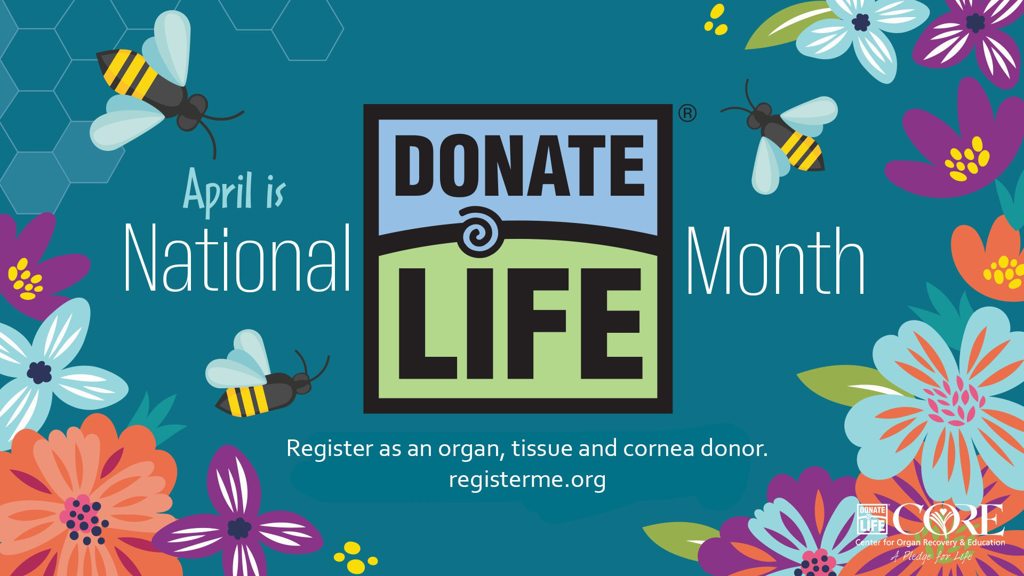
Over 100,000 people across the nation are waiting for a life-saving transplant. Unfortunately, many people never get the chance to match with a suitable donor; only 3 out of every 1,000 recently deceased individuals are eligible to make a viable donation. This nationwide shortage, combined with a lengthy waitlist, causes many people to pass away while waiting for an organ donation. But you can make a difference by becoming an organ donor.
Why should I become an organ donor?
Every nine minutes, a new person joins the national waiting list for an organ transplant, and every day around 20 people lose their lives while waiting for a donation. By registering as an organ donor, you are potentially giving a second chance at life to as many as 75 people. Organ donation is an opportunity to make a life-saving impact on multiple people’s lives.
Am I eligible to be an organ donor?
“All people should consider themselves potential organ, eye and tissue donors. Your age, race, ethnicity and health (in most cases) don’t affect your eligibility,” said Russell Cameron, MD, Chief Medical Officer and Chief Medical Information Officer for Penn Highlands Healthcare.
How do I register to be a donor?
In Pennsylvania, you can sign up online at donatelifepa.org. You can also become a donor when you renew your driver’s license in person, or online at dmv.pa.gov. On most states’ online registries, you can choose which organs and tissues you want to donate. After you sign up, you should tell your family about your decision so that if the time comes, they won’t feel surprised and can help you carry out your wishes.
I hear a lot of conflicting information about donation. What’s the truth?
It can be hard to think about what’s going to happen to your body after you die, let alone donating your organs and tissue. Many people delay organ donation because of inaccurate information. Here are a few common myths with answers from experts.
Myth 1: If I agree to donate my organs, the hospital staff won't work as hard to save my life.
“When you go to the hospital for treatment, doctors are focused on saving your life,” said Dr. Cameron. “You’ll be seen by a doctor with expertise in your condition and receive the best care possible.”
Myth 2: An open-casket funeral isn't an option for people who have donated.
“Organ and tissue donation doesn’t interfere with having an open-casket funeral,” explained Dr. Cameron. “Your body will be treated with care, and there will be no visible signs of organ or tissue donation.”
Myth 3: I’m not in the best of health. Nobody would want my organs.
“Very few medical conditions automatically disqualify you from donating organs,” said Dr. Cameron. “It may turn out that some organs can’t be transplanted, but other organs and tissue may be fine.”
Organ donation provides a life-giving, life-enhancing opportunity to people who previously had little hope. And donation affects many more individuals than the donors and recipients. It makes an impact on the families, friends, colleagues and acquaintances who love and support those in need of a transplant. Thinking about death is difficult, but making a choice to potentially save people’s lives is easy.
Throughout April, Penn Highlands Healthcare hospitals have special activities planned to raise awareness among patients, visitors and employees about the importance of organ, tissue and cornea donation. To learn more about organ donation, visit www.core.org.
